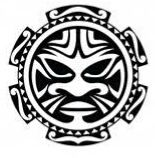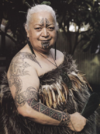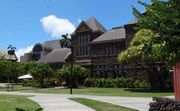University of La Rochelle
| University of La Rochelle | |
|---|---|
| Wānangāronui a Tokapa | |
 | |
| Motto | i Mānuka ta mau i ku mātauranga |
| Motto in English | Our weapon is education |
| Established | 1 October 1980 |
| Type | Public |
| Endowment | KRB5 billion (OAD 35 billion) |
| Chancellor | His Royal Highness, Ehe |
| Academic staff | 1,000 |
| Admin. staff | 1,000 |
| Students | 10,000 |
| Undergraduates | 7,000 |
| Postgraduates | 3,000 |
| Location | La Rochelle (Tokapa), The Rock Island (Tokamotu), The Oan Isles (Kōa) |
| Campus | 3 |
| Former names | None |
| Colours | Light Blue, Dark Blue, Black and White |
| Nickname | Watoka |
| Mascot | Blue Macaw (Makoa Rakau) |
| Affiliations | Oan National University Council |
| Website | [1] |
Contents
Organisation
The University of La Rochelle is owned by the University Company. University Company is fully owned by the government of the Oan Isles. Its board of directors is appointed by the Minister of Education. The board of directors appoints the Chief Executive Officer. The board of directors is responsible for creating the framework by which the University of La Rochelle administers its affairs and for developing and managing security, transport and housing services for its staff and students. The University Company is also responsible for appropriating the government endowment. The University Company does not have the authority to control the teaching, research, tuition fees, appointment and dismissal of academic and support staff nor the discipline and admittance of students.
The University of La Rochelle is governed by the Rector. The Rector is the administrative head of the university who is appointed by the Academic Council in consultation with the Student Council. The The Student Council is elected by students. It elects an executive committee to carry out the daily administration of student issues over which the Student Council has been given authority. The Student Council elects a Student President among the members of the executive council to act as the highest representative of the student body. The Academic Council is formed of senior academic staff who are responsible for governing matters of academics and research within the purview granted to them in accordance with the University Constitution. The Student Council and the Academic Council have the authority to amend the University Constitution by a two thirds majority when seated as a joint assembly called the University Council.
Faculties
There are four faculties that comprise the school:
- The Faculty of Law is responsible for offering education and conducting research in law and legal practice. It offers the following qualifications: Master, Doctor Bachelor (Honours) and Bachelor of Laws and a Postgraduate Diploma in Law and Diploma in Laws.
- The Faculty of Commerce offers education and conducts research on economics, accounting, finance, actuarial science, mathematics and statistics. It offers Bachelor, Masters, Doctor, and Honours degrees in accounting, actuarial science, economics (often combined with either mathematics, statistics, finance or information systems), management and econometrics, while tax and auditing are offered at postgraduate level as an independent degree and Master, Doctor, Honours and Bachelors degrees in Mathematics, Applied Mathematics and Statistics.
- The Faculty of Humanities is the biggest faculty. It offers teaching and research in a multitude of subjects broadly grouped into the social sciences (excluding economics). It offers Masters, Doctoral, Bachelor, and Honours degrees in education, language, linguistics, politics, religion, theology, anthropology/sociology, history, social work and psychology.
It also has two schools that theoretically fall under one of the above-mentioned faculties, but, in practice operate independently of them. These are:
- The Graduate School of Business offers interdisciplinary education and research in commerce and business. It offers the University's Master of Business Administration (MBA) degree. It also offers short courses in commerce and business-related subjects such as risk management.
- The La Rochelle Institute of Advanced Study offers interdisciplinary training and research in the social sciences. It develops the coursework and provides the research environment for postgraduate studies in the social sciences.
Campus
The University has three campuses. The Main Campus is located in the Makoa suburb of La Rochelle. The campus covers approximately 50 hectares. It houses all the faculties excluding the two independent schools. The campus has closed access. It is monitored by CCTV camera and regularly patrolled by plain-clothes security personnel with level three security clearance (the right to forcefully enter into a building and discharge a gun). There is uncapped broadband internet freely offered to all students and staff. There are numerous computer centers. Each faculty has a library and there is a main library that houses a collection of over a million books. Most of the buildings house offices and lecture venues. There is a cafeteria with fast food shops that offer affordable meals. There is a recreation center with free coffee, pool, television, video games, virtual reality gaming and other entertainment on offer under special arrangements. Smoking and drinking on campus is forbidden. There are two museums and one outdoor art gallery.
The La Rochelle School of Advanced Study is located in the Putangitangi district in the suburban areas. It is located on the estate of the former Lords of Putangitangi and built in the Old Polynesian Style. It has a gallery that displays the Putangitangi collection of old artefacts. The Lord of Putangitangi retains that title and has a house on the property. The Graduate School of Business is located along the waterfront. It houses the University's Water Sports Center.
Sports
The University of La Rochelle is one of the premier sports universities in the country. It has one of the best rugby, soccer, surfing and sailing teams in the country. Its athletes compete not only in university and community competitions for amateurs but professional leagues in domestic settings particularly its rugby which competes internationally as well. The University prides itself in sport, offering scholarships to students who compete in the sports disciplines offered by the school and fully, buying their equipment and handling their training. Sports Weeks particularly the annual Rugby Clash in April, are considered major social events with the academic calendar being designed to accommodate them.
The University Sports Complex is located across the street, but it is administered separately from the Main Campus. The University Sports Complex has a general-access gym that is freely available to all students and staff and available to the public with a monthly fee. There is an advanced training center for athletes competing at university level. It has trainers and sports medical personnel to develop the athletes. There is an outdoor multipurpose stadium for rugby, soccer and track athletics. The venue has a moveable roof and seats over 20,000 spectators. It is the home ground of the University rugby and soccer teams, which are considered professional teams and compete at national-level leagues. There is are two Olympic-size swimming pools. There is a cricket and hockey oval and a field with pavilions for soccer and rugby. There are indoor courts for basketball, martial arts, stage for boxing and wrestling, a cage for mixed martial arts, and gymnastics, squash and other sports. There is an outdoor tennis court with pavilions that seat 3,000 people. There is are cricket nets. There is a rock climbing wall and tree climbing poles.
The University Water Sports Complex is a large center to train and develop athletes in the water sports offered by the school such as sailing, surfing, wind-surfing, canoeing and diving. It has a diving tank with pressure control. It equips its athletes with all the equipment that they need such as diving suits and oxygen tanks and safety gear. The University also has a marina at the Water Sports Center that houses all that yatchs.
Clubs
The school has a number of non-sports clubs offered to students as well. There are fellowship clubs for the various religions on campus. The University Temple is a large venue with seating for 700 students that is designed primarily for Mauist services but people of other religions are free to use the venue. There are also nationality clubs that offer support for students from overseas and help develop cultural understanding on campus. There is a club aimed at the LGBT+ community called Rainbow ULR but open to heterosexuals as well. There is are political clubs formed of the student wings of the various political parties or some rally behind a particular cause such as the Free Gemica society which aimed to encourage support for the liberation of Gemica now known as the Kōhatu Isles. There is a choir, art group, drama group and other groups in the arts.



